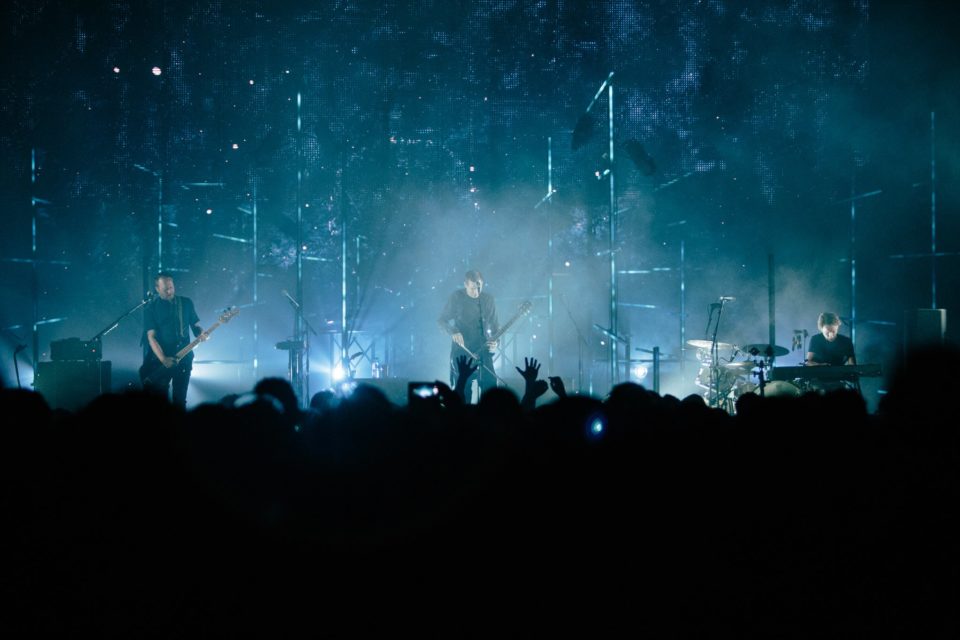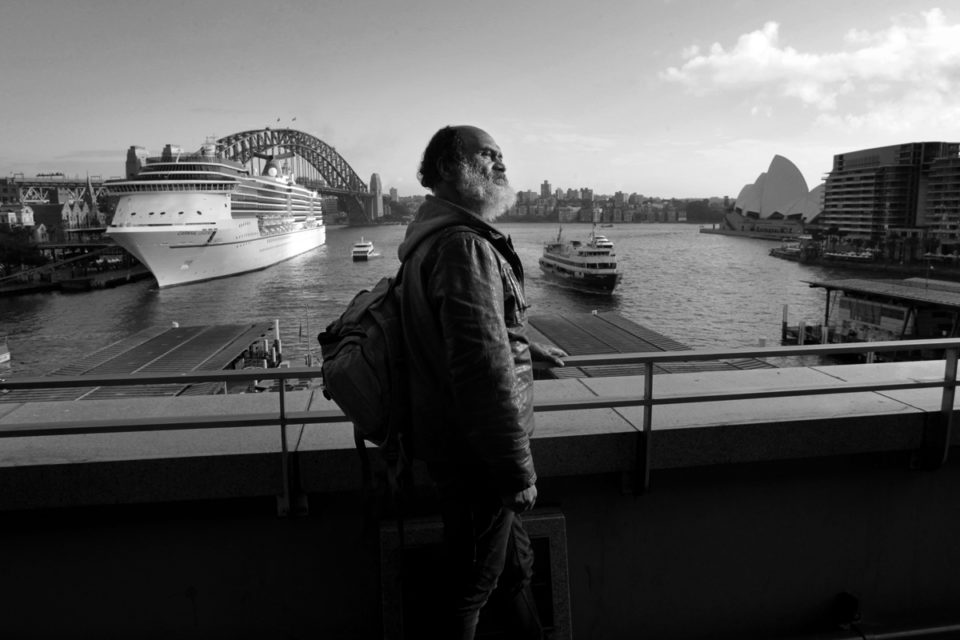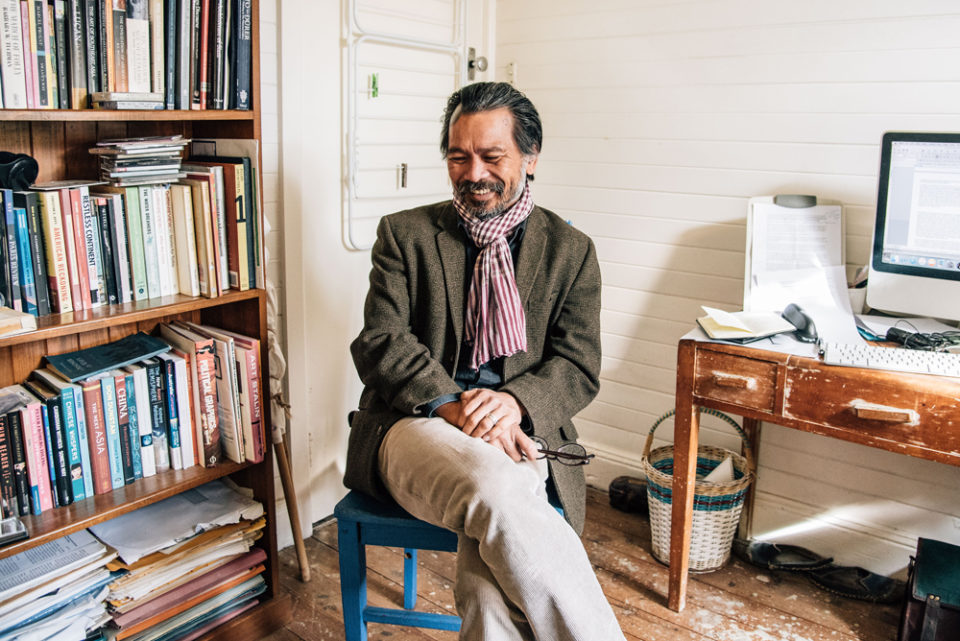Baby-faced British trio – Hannah Reid, Dot Major and Dan Rothman – have built a brand out of embracing the angst that comes with adolescence. Their debut album If You Wait (2013) chronicles a first relationship falling apart – the dawn of impermanence, the fear you missed the moment of misplacement, the realisation that love may not last forever.
In the album’s title song, Reid’s haunting vocals graced lyrics about the stickiness of feelings: “I believed I could take you on/we would drink, we would dance, and you would watch me whenever you want.” She goes on to preach the desperate kind of hopefulness that comes with loss: “And if you wait, if you wait/I will trust in time that we will meet again.”
These confessions of emotional clumsiness became the soundtrack to quarter-life crises, which we played – my friends from uni and I – as we drove around roundabouts with the windows rolled down, heading nowhere in particular.
London Grammar would become an international favourite. Their album went double platinum. The band was nominated for Best British Breakthrough Act at the Brit Awards, scored an Ivor Novello Award for ‘Strong’, won ‘Independent Breakthrough of the Year’ and ‘PPL Award for Most Played New Independent Act’ at the AIM (Association of Independent Music) Awards. They were not only loved, they were critically regarded.
For 8:30am on a Wednesday morning, Dan Rothman is abnormally chipper. I’ve called him at his London home where he is preparing for the band’s upcoming tour around Europe in support of their new album,
If it weren’t for Rothman, London Grammar probably wouldn’t have happened. Back in 2009, the burgeoning guitarist started at the University of Nottingham with the hope of starting up a band. After friending Hannah Reid – a fellow Nottingham first-year – on Facebook, Rothman noticed a photo of her singing with a guitar, and asked if she wanted to collaborate. A year later, the two drafted Dot Major – a freshman Rothman had taking to jamming with after his girlfriend introduced them both – who brought piano and percussion.
After graduating in 2011, the trio played a string of shows at local pubs before being spotted and signed with Ministry of Sound.
I ask Rothman if there was ever a moment, all those years ago, when he thought the three of them could forge a future together as London Grammar. I don’t expect him to tell me that he was at the time, instead, preparing for failure.
“We were just finished university and I was sat with Hannah and Dot and we were just paying this little f___ing pub somewhere, like this little shit – I mean, it was fine don’t get me wrong, it was what it was. And I remember saying at the time, ‘You know guys, I’m going to have to get a proper job after this. You know … I’ve gotta be a f___ing normal person!’”
Three months later, the band were spotted. “We were very lucky,” says Rothman
Surely you know it must have been more than luck?
“We always individually and together worked very hard as a band.” Rothman chews on each word carefully as he speaks. “We fought, we wanted to do it. And–” the words start running into one another in excitement “–Hannah has got an incredible voice and I knew, I knew at the time, that if somebody heard it they would see what I saw in it.”
“But the timing is quite fortunate,” he adds. “And it was fortunate that I was looking for people. I’ve always been a good encourager of people.”

Hannah Reid of London Grammar
Anxiety is also the reason behind the band’s four-year radio-silence between albums.
No doubt, Major, Rothman and Reid would have felt the pressure to live up to the success of If You Wait. But their lengthy break can also be traced back to Reid’s intense stage fright. The singer had originally wanted to pursue a career as an actress, but gave up that dream on account of her performance-nerves, sometimes so crippling that she has admitted to being sick before shows.
On tour, Reid cares for her semi-classically-trained voice fiercely, giving up drinking, late-nights, and (sometimes) speaking altogether. As such, the band doesn’t write much on the road.
“Lots of people thought we had disappeared, which is great! I loved it. People thought we had broken up or something – [it] put a little bit of mystery behind it,” Rothman says before explaining, “We had to come home, be normal again.”
“We always knew [writing a new album] was going to take two years. We needed two years to make a new album. So we had two years of touring, two years of recording. In our minds it hasn’t really been that long. But four years is a f___ing long time!”
He swears to me that this time round the three of them will try to write on the road: “I think we f___ing need to… We can’t do any more of this f___ing four-years shit anymore.”
Truth is a Beautiful Thing does not play like the product of anxiety. Sure, the band aren’t profiting a revelation – the album title probably came to them from a Year 10 English tutorial on Keats’ Ode on a Grecian Urn (“beauty is truth, truth beauty”). But there is a profundity to London Grammar’s evolution across their two albums. Before, Rothman and Major crafted their sound around Reid’s ghostly vocals always to compliment, never compete: the hum of a heavy chord made soft; individual notes tentatively plucked and played. Now, there is a boldness to their sound: Reid’s chilling phrases are punctuated by a bass and drum, particularly in beat-heavy tracks like ‘Hell to the Liars’.
Was there ever a time when you thought that it wasn’t going to happen? I ask.
Rothman pauses. “There were some very testing moments on this … and there were moments on this where I was wondering if we could ever get past some of the creative differences.”
One of those creative differences was track seven: Non-Believer. The bluesy number stands out from the rest of the album; a cacophony of synth and twang that plays like a clash between The National and Daft Punk.
“’Non-Believer’ was a testing one. Like Hannah and Dot and me like clashed on that one slightly. I liked ‘Non-Believer’, I kind of thought it was a bit of an experiment that song. And I think that Hannah and Dot – as much as they loved it, I mean of course we wouldn’t put out anything that we didn’t love, and we put our hearts and souls into it. But I think for them, it was too far removed from the record. That’s the one that sticks out.”
This experimentation is probably a good thing. A “sameyness” in sound across their debut,
But it makes perfect sense. With the band’s evolution in sound has come an evolution in conceptuality. Unlike their debut If You Wait – with a name that itself begs for hesitation – Truth is a Beautiful Thing is an album built on realisations, not speculations. The same themes of heartbreak and loss are at play in Truth, but now Reid is approaching them with familiarity and a sense of certainty that can only come with reflection.
“Only now do I see the big picture,” she sings on one track. “I might be blind, but you’ve told me the difference/Between mistakes and what you just meant for me.”
If You Wait was an album mourning loss and hoping for reunion. Instead, Reid is now demanding the truth when she sings, “Don’t say you ever loved me/Don’t say you ever cared.”
London Grammar play at the Hordern Pavilion on Thursday 21 September – and at the Concert Hall, Sydney Opera House, Monday 25 and Tuesday 26 September 2017.
The band is touring nationally – other dates include: Saturday 16 and Sunday 17 September at the Arts Centre, Fremantle; Tuesday 19 September at Margaret Court Arena, Melbourne; Saturday, 23rd September, Riverstage (Brisbane Festival), Brisbane.






